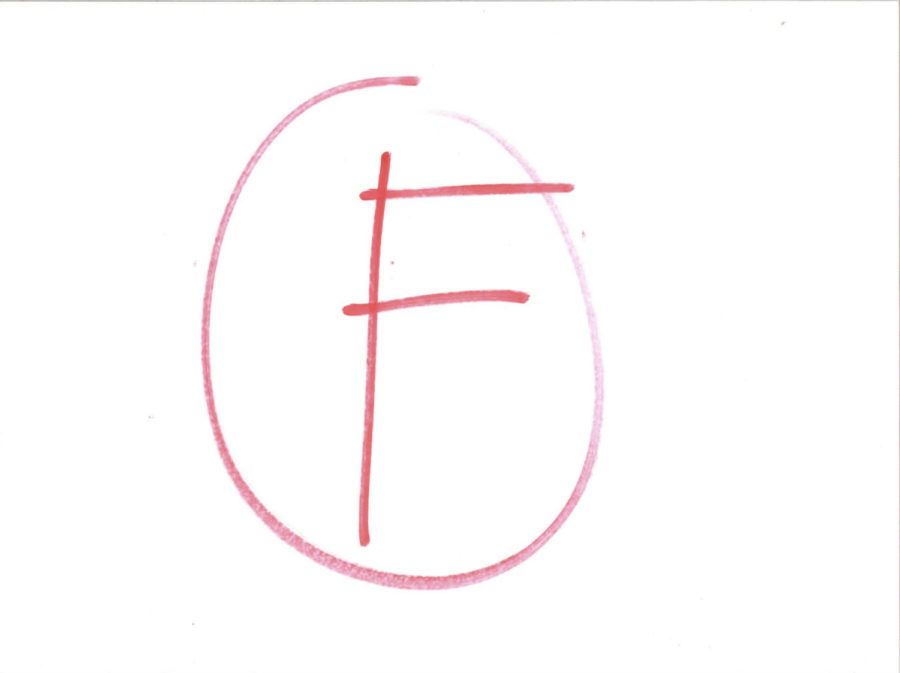How to avoid failing the most-failed classes at Iowa State
Those of us who grew up in the U.S. often take our education for granted. I often overhear my classmates complaining about how unfair the professor was or how long the assignment had to be. We are blessed with the opportunities for good education and fulfilling careers, so much that we often expected these things to just fall into our laps. But for many outside the country, such opportunities are limited, and they come to the States for school just to secure a desirable future.
February 21, 2013
Failing a college class is avoidable if the right steps are taken.
To evaluate what the most failed classes are at Iowa State, one has to refer to the DFW list. This list shows the percentage of students who get a D+, D, D-, F, or who withdraw from the course after the first week.
According to the DFW list, in fall 2011, there were five math courses in the top 10 alone with a 45 to 68 percent success rate. Skipping forward, in fall 2012, there was only one math course in the top 10 with a 53-percent success rate.
The math department has made many changes such as trying to lower the number of math classes on the DFW list and raising the percentages of passing students.
“What we had to do was look at all of the 100- and 200-level courses. We tried to figure out if these were the right courses we should be offering, if we had the right professors teaching these courses and if the students are being placed in the correct classes,” said Wolfgang Kliemann, chair of the mathematics department.
Kliemann explained that redesigning the content of the math courses is very important. For example, he mentioned that College Algebra, Math 140, was a class that was always on the DFW list. The math department had to look at how it was being taught and what was causing this.
They fired and rehired the professor to get the right fit and teaching style for ISU students, gathered a new team to construct and teach the class and put in to place Math Help.
Math Help is a department-based study tool that is offered for free every afternoon of the week. This allows students to get one-on-one time with upperclassman who have successfully completed the math courses.
“These changes alone raised the percentage of success by 30 percent,” Klienmann said.
He also explained the changes happening with introduction to probability and matrices, introduction to mathematical ideas, trigonometry, and trigonometry and analytic geometry, which took on the same process of re-evaluating and redesigning.
Kliemann also talked about a new study the math department is currently in the process of conducting with the calculus class lectures.
“We have split the lectures into two groups. For one semester, one of the groups will use clickers and the other will not. The next semester we will flip-flop those classes, so the professor who was teaching with the clickers before will teach without them,” Kliemann said.
He explained that this will help determine how much of the success is from the clickers and how much of the success if from the different professors and their teaching styles.
“By making these changes and giving the changes time to have a full effect,” Kliemann said, “my hope is to get all of the 100- and 200-level courses up to a success rate of [80 percent to 85 percent].”
Math, however, is not the only failed class at Iowa State. Essentially, any class can be failed, but there are many resources offered to students to help prevent this from happening.
The Academic Success Center is a resource that provides many different options for learning. They not only offer tutoring, but also supplemental instruction, academic coaching and a one-credit Psychology 131 class that helps teach students how to set goals learn study strategies and gain time management skills. This course is mainly for first-year students.
Tutoring is a campus-wide option that is offered for many classes. An undergrad that meets the qualifications meets two times a week with a group of two to four students.
“We believe in peer interaction. Sometimes, it helps to have other students there who voice their questions, because sometimes a student doesn’t know what they don’t understand,” said Wendy Stevenson, Learning Student Services specialist.
Stevenson said she believed that though a student is still working with other students, the added pressure of a large lecture hall is gone, making it more comfortable to ask questions and learn.
Another campus-wide option is supplemental instruction. Supplemental instruction is for mainly 100- and 200-level courses that have had a high failure rate historically at Iowa State.
“We hire [supplemental instruction] leaders that meet the requirements, and then they actually go to the class they are helping with and sit in on the lecture. They also then hold study sessions three times a week,” said Susan Rhoades, coordinator of the Academic Success Center.
Rhoades explained that it has been proven that the more a student goes to the extra study sessions, the higher the student’s grades will be. This can be a half to a whole letter grade higher compared to the students who don’t go as regularly or at all.
Academic Coaching is another option that offers a more one-on-one kind of interaction. It helps students figure out what is getting in the way of their learning, figure out a solid schedule and make a plan of action.
“We try to work with faculty to recruit students for all of these positions that would make a good fit,” Rhoades said.
Though classes can get tricky, there are many changes happening on campus and ways to do well in any class. It’s up to students to take the steps necessary to climb to success.

















